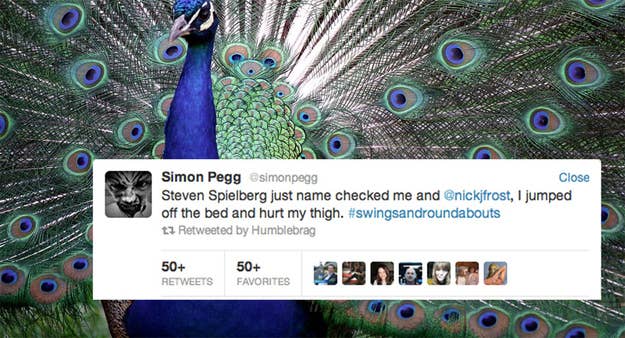
Here are some well-nigh impossible things to do online, as matters stand: accept a compliment gracefully, promote your own stuff, champion a friend's work, exclaim over your own good fortune. All these things are very, very liable to be taken wrong, seen as fake, vain, creepy, careerist or sycophantic. Not that the same suspicions aren't common enough offline, but the online world is a kind of hothouse for them, and for the bitter criticism that follows.
Bragging, humble or otherwise, seems to be the gravest sin on Twitter; self-promotion, the second gravest. Many people go on Twitter because they want something from others. I go on there myself in order to draw attention to stuff I have written. Partly! I also go to read the news, pass cat videos around, learn what people are up to, watch the antics of various nutcases whom I enjoy following, etc. None of it is fake, insofar as I really do want people to read stuff I send around (including my own), and I want just as much to know what everyone else is up to. The 400 or so people I follow seem to go about it the same way, "authentically," for lack of a better way of putting this.
This asking for attention is completely legitimate, but in practice, there are powerful forces pressuring us to avoid any kind of self-promotion at all, or enjoy our good fortune openly. Given all these complications, it would appear that only one person so far has figured out how to use Twitter entirely blamelessly: the British comic and TV presenter Simon Amstell; he has around 35,000 followers, but hasn't ever tweeted, not even once.
Since women are in a particularly delicate predicament with respect to "assertiveness", navigating Twitter is still more difficult for them. I don't think I've ever seen a woman retweet praise for her own work, for example. But men do it all the time. Men whom I admire greatly! Men whose panache I would love to somehow coax onto my own helmet. Do I mind when someone else retweets a compliment to himself? No!
"Be more assertive at work," one is told in the ladyblogs and so on. Good idea, probably, and it is all very well to write such things in a ladyblog. But it is really no use, I will never be able to retweet a compliment any more than I've ever been able to ask for a raise without having an attack of leprosy first.
This gender-based reticence maps to IRL situations where mentioning your own accomplishments might result in heinous accusations of "stridency" or "shrillness". If a woman manages to promote her accomplishments reasonably successfully, though, she is said to have "balls." Haha!
While I hope that the younger women who grew up in more egalitarian circumstances would be able to blab about how great they are on Twitter all day long, I do not see that happening. It seems to me that young women, in order to be seen as really attractive, still try to be a little bit on the shy side.
Here is a thing that is going to get me in trouble: I like it when women are gentle and a little bit shy. On Twitter, and anywhere else. But wait! Before you start yelling at me, I like it when men are that way, too! It's a Goldilocks thing. Not too shy, and not too forward either.
Get this, though. Just as I was finishing writing this thing, a tweet came up:

Someone was trying to bust this guy to @Humblebrag! No matter what you say, you are going to get raked.
The most ridiculous part of it is that humblebragging is the tiniest, most miniature crime. Who cares when goofy celebrities say dumb things about their celebrity? What else are they going to say? Why else are you following them on Twitter, if not in order to confirm the widely-held suspicion that being that famous drives people literally insane.When your work receives a kind comment on Twitter, it would seem unappreciative and standoffish not to say thank you, somehow or other; it would seem like you don't even care. If the person making the remark is not following you, though, you can only say thank you semi-privately. So take your pick: You're going to come off either snobby, or braggy.
Thus it has come to pass that people confine themselves to maybe one tweet when a new piece comes out, or very quietly and carefully mention that they've won a prize or honors, kind of staring into the middle distance in total impassivity so as not to call forth any accusations of careerism, vanity or fakery, or on the other hand, of humblebragging.
Otherwise, silence is your only option. And if everybody is going to be silent all the time, just to be on the safe side and not offend anybody, they might as well just shut the darned Twitter off entirely.
Please, so far as I am concerned, go ahead and make with the exclamation points when you win your Pulitzer, or are seated next to Clive Owen at a gala or whatever. What I would really love would be an acknowledgement that it is okay to be and do and say whatever, really, for a forgiving spirit to prevail online. There should be no penalty for saying this or that on Twitter or Facebook, provided it isn't harming anyone. There should be no penalty for just enjoying your life.
Or commenting on it, even a little incredulously.
Maria Bustillos is a writer in LA and author of two books: Dorkismo: The Macho of the Dork; and Act Like a Gentleman, Think Like a Woman. She tweets at @mariabustillos
